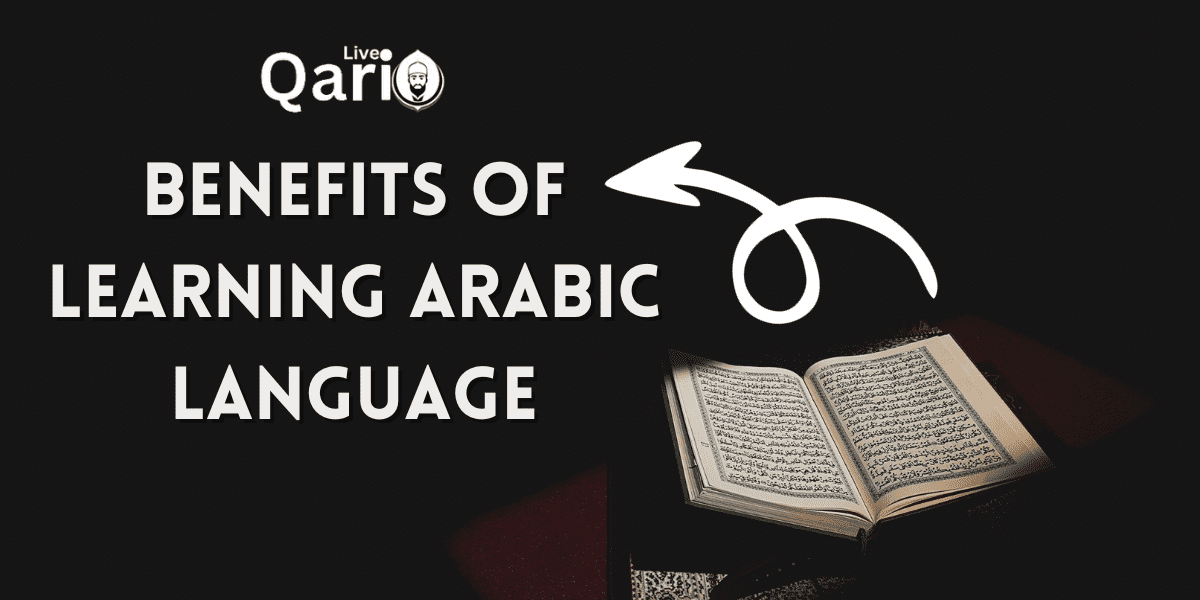
Benefits of Learning Arabic Language
Enhancing Career Opportunities
Learning Arabic can significantly boost your career prospects. It opens up new job opportunities in various sectors, especially in a world where global connections are increasingly important. Proficiency in Arabic can be a standout skill on your resume, making you more attractive to employers who operate in or with Arabic-speaking regions.
Job Markets That Value Arabic
Arabic is highly valued in several job markets, including international business, diplomacy, government services, and non-governmental organizations (NGOs). Companies and institutions that have ties with the Middle East and North African region particularly seek individuals who can navigate these markets with linguistic and cultural ease. Sectors like tourism, journalism, and education also highly regard Arabic language skills.
Career Paths Enhanced by Arabic Proficiency
Proficiency in Arabic can enhance career paths such as foreign service officers, international business executives, translators, interpreters, and educators. It’s also beneficial for those working in intelligence and security roles, cultural consultancy, and international law. Furthermore, proficiency in Arabic can lead to unique opportunities in arts and media, offering a broader audience and deeper cultural engagement.

If you want to learn arabic language course join us on qari.live right now!
Cultural Understanding and Global Relations
Learning Arabic goes beyond just language skills—it’s a gateway to understanding the rich and diverse cultures of Arabic-speaking countries. This understanding fosters respect and builds stronger global relations. Learning Arabic allows you to understand the traditions, beliefs, and everyday practices of Arabic-speaking societies, which is extremely valuable in our globally connected world.
Arabic and Inter-Cultural Communication
Arabic plays a key role in intercultural communication. It enables you to interact more effectively with Arabic-speaking individuals, whether in business, diplomacy, or social settings. Understanding the language helps in navigating cultural nuances and expressing ideas more accurately, leading to more meaningful and respectful exchanges between different cultures.

Strengthening Global Relations Through Language
Language is a powerful tool in international relations, and Arabic is no exception. Proficiency in Arabic can help bridge gaps between nations and cultures. It enables better diplomatic conversations, cooperation in international projects, and mutual understanding in global contexts. In a world where cultural sensitivity is increasingly important, speaking Arabic can play a significant role in fostering peaceful and productive international relationships.
The Role of Arabic in Education
Arabic holds a significant place in education, not just in language learning but across various academic disciplines. Its importance includes offering a more in-depth knowledge of various topics, particularly those connected to the Middle East and Islamic studies. Learning Arabic can enhance educational experiences by offering new perspectives and access to a rich body of knowledge.

Arabic in Academic Research
In academic research, Arabic is particularly valuable. It’s essential for accessing primary sources in fields like history, theology, literature, and political science, especially those pertaining to the Arab world. Knowing Arabic allows researchers to delve into original texts and documents, offering a more authentic and comprehensive understanding of their subject matter.
Opportunities for Study Abroad
Knowledge of Arabic opens up exciting opportunities for studying abroad in Arabic-speaking countries. It makes learning more fun and interactive, letting students get a close-up experience of the local culture and history. Studying in Arabic speaking countries offers a unique view of their history, art, culture, and politics that’s different from anywhere else
Travel and Exploration
Traveling to Arabic-speaking countries becomes more enriching and enjoyable when you know Arabic. It’s not only about getting around; it’s about truly connecting with the local culture, learning its history, and deeply experiencing each place. Knowledge of Arabic significantly enhances the travel experience, making it more immersive and memorable.
Arabic for Travelers
For travelers, knowing Arabic can be incredibly useful. It helps in everyday situations like asking for directions, reading signs, and ordering food. More importantly, it allows for deeper interactions with locals, offering insights into their way of life and traditions. Even basic knowledge of Arabic can greatly improve the quality of your travel experience.
Unique Travel Experiences in Arabic-Speaking Countries
Arabic-speaking countries offer a wealth of unique travel experiences, from exploring ancient historical sites to experiencing vibrant local markets and festivals. Knowing Arabic allows you to fully immerse yourself in these experiences. You can enjoy traditional storytelling, understand historical narratives, and engage more deeply with the local culture and people, making your travel more than just sightseeing.
Cognitive Benefits of Learning Arabic
Learning Arabic offers notable cognitive benefits. Since it’s a complex language with a unique script and grammatical structure, mastering it can significantly enhance cognitive functions. It gives your brain new challenges, which helps improve your memory, your ability to notice details, and your overall quick thinking.
Mental Flexibility and Creativity
Engaging with Arabic’s distinct script and linguistic patterns promotes mental flexibility and creativity. Learners often find themselves thinking in new ways as they navigate the language’s intricacies. This kind of brain exercise can lead to more inventive problem-solving and thinking differently in various areas of your life.
Problem-Solving Skills
Studying Arabic can also sharpen problem-solving skills. As learners tackle the tricky grammar and words of Arabic, they get better at thinking critically and making decisions. This improved skill in solving problems helps not only in learning the language but also in other parts of life like school and work.
Access to Rich Literature and Media
Learning Arabic opens the door to a vast array of literature and media that are otherwise inaccessible to non-speakers. This includes classical texts that have shaped history and modern media that reflect contemporary Arab societies. Looking into these materials helps you learn more about the culture and knowledge of the Arab world.
Arabic literature
Arab literature is famous for its variety, including everything from old poetry and philosophy to modern novels and short stories. Knowledge of Arabic allows you to experience these works in their original language, offering insights into the nuances, cultural contexts, and literary styles that translations may miss.

Arabic Media and Entertainment
For those interested in contemporary Arab culture, proficiency in Arabic grants access to a wide range of media and entertainment options. This covers things like news, TV shows, and movies, which all help you understand the current Arab world, its people, and their views. Watching Arabic media is a great way to learn about the culture in Arabic speaking places.
Personal Growth and Development
Learning Arabic isn’t just about acquiring a new language skill; it’s also a journey of personal growth and self-improvement. As you navigate the complexities of the language, you develop patience, resilience, and a deeper understanding of your capabilities. This process of learning and overcoming challenges contributes significantly to your personal development.
Building Confidence and Self-Esteem
Mastering Arabic, with its unique script and structure, can be a significant achievement. As you improve in the language, you feel more confident and positive.
Perspective Broadening
Learning Arabic also broadens your perspective. It helps you learn about different cultures, histories, and ways of thinking, making you more open-minded and understanding. This broader view can improve how you interact in a diverse world and deepen your understanding of worldwide issues. It’s an invaluable asset in both personal and professional spheres.
Challenges and Overcoming Them
Learning Arabic, like any language, comes with its set of challenges. However, overcoming these challenges can be highly rewarding. Acknowledging and addressing these difficulties head-on is key to a successful learning experience. This journey not only enhances language skills but also builds character and resilience.
Common Challenges in Learning Arabic
Some common challenges faced by learners include mastering the Arabic script, which is significantly different from the Latin alphabet, understanding complex grammar rules, and getting accustomed to the various dialects. If Arabic is not your first language, pronouncing the words right can be tricky. While these challenges might look overwhelming initially, they are a usual step in learning the language.
Ways to Tackle These Difficulties
To tackle these challenges effectively, having a planned and regular learning routine is essential. Utilizing various resources like language apps, online courses, and practice groups can be beneficial. Engaging with native speakers and immersing oneself in Arabic media can also aid in overcoming these hurdles. Regular practice and patience are crucial, as is maintaining a positive attitude towards learning.
Many Ways to help you in Arabic Learning
Nowadays, there are lots of easy ways to help you learn Arabic with technology. These resources cater to different learning styles and levels, making the process more accessible and efficient. They range from online courses and tutorials to interactive language apps, providing learners with a variety of options to suit their needs.
Online Resources
Online resources for learning Arabic are abundant and diverse. These include educational websites, video tutorials, and online forums where learners can interact with native speakers and fellow students. Many of these resources offer comprehensive lessons covering grammar, vocabulary, and pronunciation, often accompanied by practice exercises and cultural insights.
Language Learning Apps
Language learning apps have become increasingly popular for their convenience and interactive approach. These apps usually turn learning into a game to keep it interesting and enjoyable. They’re designed to be used whenever and wherever you want, fitting easily into your everyday schedule. Many apps offer personalized learning experiences, adapting to the learner’s pace and level, and provide instant feedback, which is crucial for language acquisition
Community and Networking
Being part of a community and networking are vital aspects of learning Arabic. Engaging with Arabic-speaking communities and networking with fellow learners or speakers can significantly enhance your language skills and cultural understanding. These interactions provide real-life practice opportunities and cultural immersion, which are essential for mastering the language.
Joining Arabic-Speaking Communities
Joining Arabic-speaking communities, whether locally or online, offers invaluable opportunities to practice the language in a natural setting. It allows learners to immerse themselves in the language and culture, experiencing firsthand how Arabic is used in daily conversation. You can find these groups in different places like cultural clubs, language swap gatherings, or through online platforms and social media networks.
Networking Opportunities
Networking with other Arabic learners or speakers can open doors to new learning experiences, career opportunities, and cultural exchanges. It can lead to forming study groups, attending cultural events, or even participating in language-related activities. Networking in such environments also provides motivational support and a sense of belonging, which are crucial in the language learning journey.
The Happiness in Discovering a New Language
Learning a new language, such as Arabic, is fun and fulfilling. It’s more than just picking up a new skill; it’s like starting a journey that shows you new ideas and different perspectives. The process of learning Arabic can bring a sense of accomplishment and joy as you gradually understand and connect with a different culture and its people.
Personal Fulfillment
Mastering Arabic brings a deep sense of personal fulfillment. It’s an achievement that goes beyond linguistic capability, as it often involves overcoming challenges and stepping out of your comfort zone. Achieving this goal is uplifting and can enhance your self-assurance, leading to personal development and a feeling of success.
Continuous Learning Journey
The journey of learning Arabic is continuous and ever-evolving. There’s always something new to learn, be it advanced vocabulary, idiomatic expressions, or cultural nuances. This ongoing process keeps the experience fresh and exciting, and it encourages lifelong learning. It’s a journey that keeps giving, enriching your life with every step.
Conclusion
The conclusion wraps up the article about the benefits of learning Arabic. It’s a quick look back at all the good things that come from learning this language, like better job chances, understanding other cultures better, and personal growth.
Summarizing the Benefits
This part quickly goes over the main good points of learning Arabic. It reminds you that knowing Arabic can help you understand different cultures, find better jobs, think smarter, and enjoy traveling and reading more. It’s a short reminder of why learning Arabic is so valuable.
Encouraging Language Learning
The last part of the article encourages everyone to try learning a language, especially Arabic. This suggests that while learning a new language can be challenging, the rewards and benefits you gain eventually make the effort worthwhile. This section is meant to motivate people to start or keep going with their language learning, promising them lots of great experiences.
FAQ’s (Frequently Ask Questions)
What cognitive benefits come from learning Arabic?
Learning Arabic helps improve memory, problem-solving, and thinking skills because of its unique writing and grammar.
How can knowing Arabic help with my career?
Being good at Arabic can lead to jobs in foreign affairs, business, translation, and security, especially important in Arabic-speaking areas.
Does learning Arabic help me understand different cultures better?
Yes, learning Arabic gives you a closer look at Arab traditions and history, helping you appreciate and understand these cultures more.
Is learning Arabic useful for traveling?
Definitely, knowing Arabic makes traveling in Arab countries more enjoyable and authentic, letting you connect more with the local culture.
Are there educational benefits to learning Arabic?
Yes, Arabic is helpful in studying subjects like history, religious studies, and Middle Eastern studies, providing new viewpoints and research chances.
The exact number of words in Arabic is not definitively known, but it is estimated to have over 12 million words. Arabic, with its rich vocabulary, is considered one of the most expressive languages, having words for nearly every concept.







